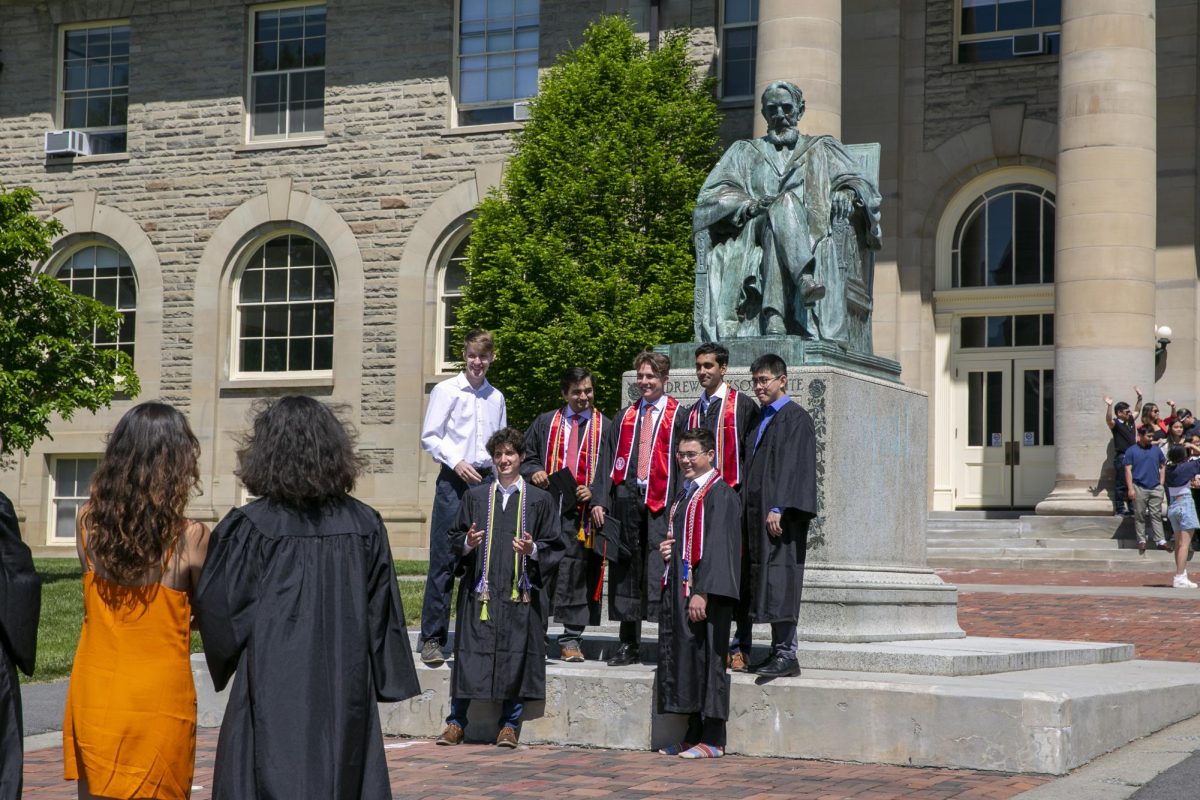Is the Pandemic Coming to an End?
People wait to be vaccinated in Tbilisi, Georgia. The U.S. donated 500,000 Pfizer vaccines to Georgia.
January 28, 2022
When COVID-19 began spreading, the words “unprecedented times” were used often.
Mask and social distancing mandates were put in place, new variants emerged and vaccines became available to some of the population. Now, times aren’t as unprecedented because we have done this all before.
However, one look at the news showcases the prediction that we might soon enter unprecedented times once again.
According to the National Library of Medicine, the COVID-19 outbreak was first considered a pandemic on March 11, 2020.
Now, some suspect COVID-19 is transitioning from being a pandemic to an endemic.
But what is the difference?
The World Health Organization considers a disease to be a pandemic when the growth is exponential. While COVID-19 caused severe symptoms in some, especially at first, this is not necessarily an indication of a pandemic virus.
According to Columbia University, a virus must “[cover] a wide area, affecting several countries and populations.”
An endemic, according to Deutsche Welle, is “a disease that occurs regularly in certain regions.”
A relatively constant rate of spread is characteristic of an endemic. Although affected regions will have more cases than other regions, the rate of cases will not increase or decrease rapidly.
Malaria, for example, is an endemic found mostly in the tropics.
The most important distinction between a pandemic and an endemic is the rate of spread.
According to DW, the WHO predicted in May 2020 that COVID-19 would become endemic.
As data has been collected, the Delta and Omicron variants are showing similar patterns to the flu; namely in their adaptability.
This also means, however, that like the flu, COVID-19 could never go away.
While this might sound intimidating, Karen Feldsher from The Harvard School of Medicine states that the hope is with enough individuals with immunity, whether from a vaccine or infection, the virus will not be as highly transmitted, and there will be fewer hospitalizations and deaths due to COVID-19.
In areas where there are more individuals who are susceptible to COVID-19, the virus may persist, thus becoming endemic.
While this is similar to the process by which other diseases have become endemic, COVID-19 is unique in that different areas took different measures to prevent its spread.
“So the patterns will likely differ considerably from what we saw with the other pandemics because of the heterogeneous responses to COVID-19 across the world,” Feldsher said “– with some places engaging in ‘zero-COVID’ policies, others with limited responses, and widely variable vaccine availability and uptake.”
Although it is predicted that COVID-19 will become endemic in some areas, experts such as Feldsher believe it is too soon to tell what areas will be affected.























